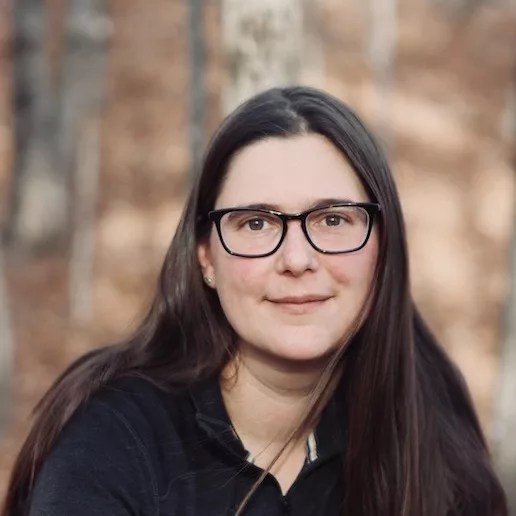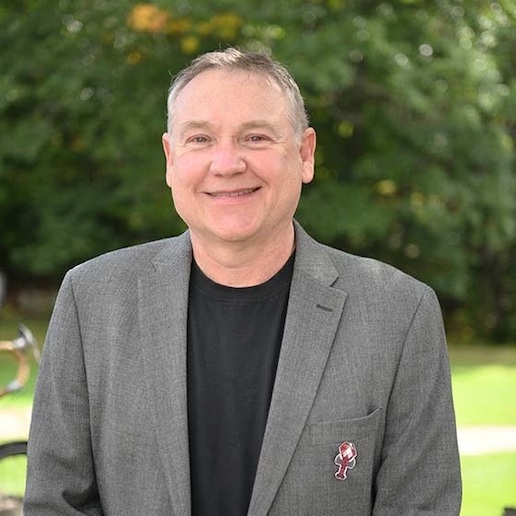Maine State Poet Laureate
she/her
Julia Bouwsma is the sixth Maine State Poet Laureate (2021-2026) and author of two poetry collections, Midden (Fordham University Press, 2018) and Work by Bloodlight (Cider Press Review, 2017), both of which received Maine Literary Awards. She is the Library Director for Webster Library in Kingfield, ME and also teaches intermittently in the Creative Writing department at the University of Maine at Farmington. Bouwsma lives and works on an off-the-grid homestead in the western mountains.

Talks
Our Arms Spread Out around It All: A History of Malaga Island through Poems
In 1912 the State of Maine forcibly evicted an interracial community of roughly forty-seven people from Malaga Island, a small island off the coast of Phippsburg that had been their home for generations. The erasure of the Malaga Island community included the removal of all dwellings and the island’s schoolhouse, the involuntary commitment of nine residents to the Maine School for the Feeble-Minded, and the exhumation and mass reburial of seventeen graves. This atrocity was followed by a century of socially-enforced silence and as a result, many Mainers today still do not fully know the story of Malaga.
This talk will pair a discussion of Malaga Island and its residents with a reading of poems from Julia Bouwsma’s award-winning collection Midden, considering the history of this shameful event, the relevancy of this history to our current moment, and also the process and implications of writing poems based on historic research.
An Introduction to Maine’s Current Poet Laureate
Maine Poet Laureate Julia Bouwsma will introduce her poetry by presenting poems from her two books, Midden and Work by Bloodlight, as well as newer poems from projects in progress. This talk, which incorporates a Q&A, will focus on the arc and progression of her work thus far, provide insight into her poetic process, consider the vital role that Maine plays in her poetry and poetic development, and explore thoughts about the particular necessity and relevance of poetry in times of isolation and division. Bouwsma will also explore her vision for the Poet Laureate position, providing an overview of recent projects designed to help Mainers gain greater comfort with poetry and connect with one another through this powerful medium.

